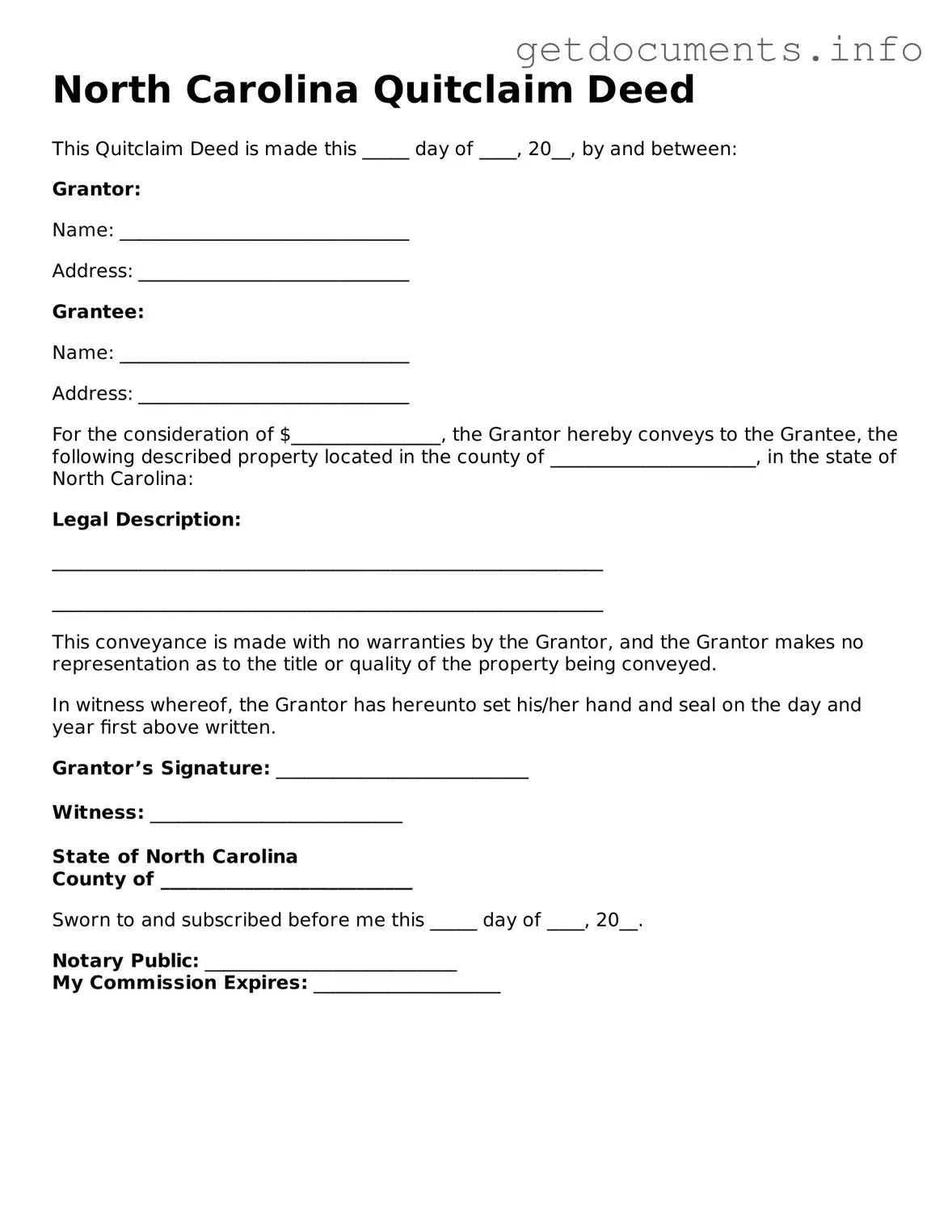Free Quitclaim Deed Template for North Carolina
A Quitclaim Deed is a legal document used in North Carolina to transfer ownership of real estate from one party to another without guaranteeing the title's validity. This form is often utilized in situations such as divorce settlements, property transfers between family members, or clearing up title issues. For those looking to complete this process, filling out the Quitclaim Deed form is essential; click the button below to get started.
Access Quitclaim Deed Editor

Free Quitclaim Deed Template for North Carolina
Access Quitclaim Deed Editor
Got places to be? Complete the form fast
Fill out Quitclaim Deed online and avoid printing or scanning.
Access Quitclaim Deed Editor
or
⇩ PDF File
